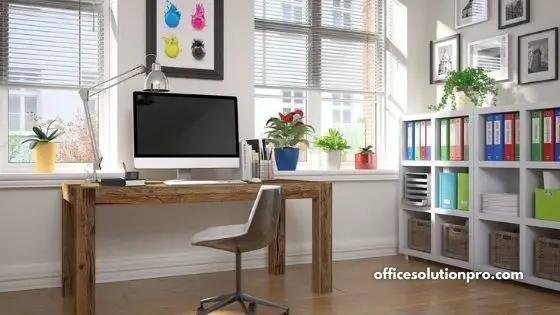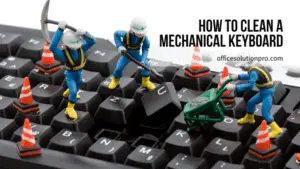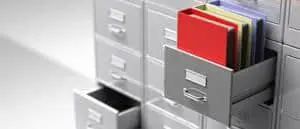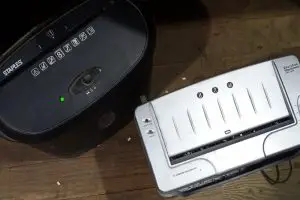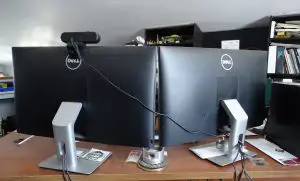If there is one skill that most of us need to develop better, it is how to organize important documents at home. How many times in your adult life have you needed a specific record, bill, receipt, or form but been unable to quickly and easily find it? If you are like most of us, that has probably happened way too often.
Even in today’s digital world, there are times when we need to lay our hands on an original paper copy. We may need to verify our identity or prove that we paid a bill or activate a warranty, for example. Not everything can or should be stored “in the cloud,” and life gets complicated without the proper documentation.
Let’s take a closer look at some of the essential documents that we should all keep organized at home and why they are necessary in the first place. We will also discuss how long you need to keep certain documents and how to dispose of them safely. Finally, we will show you how to organize important documents at home.
We hope you love our tips & how-tos. Office Solution Pro is supported by its readers. This post may contain affiliate links. We may earn a commission at no additional cost to you.
Important Paperwork That All Adults Need to Keep
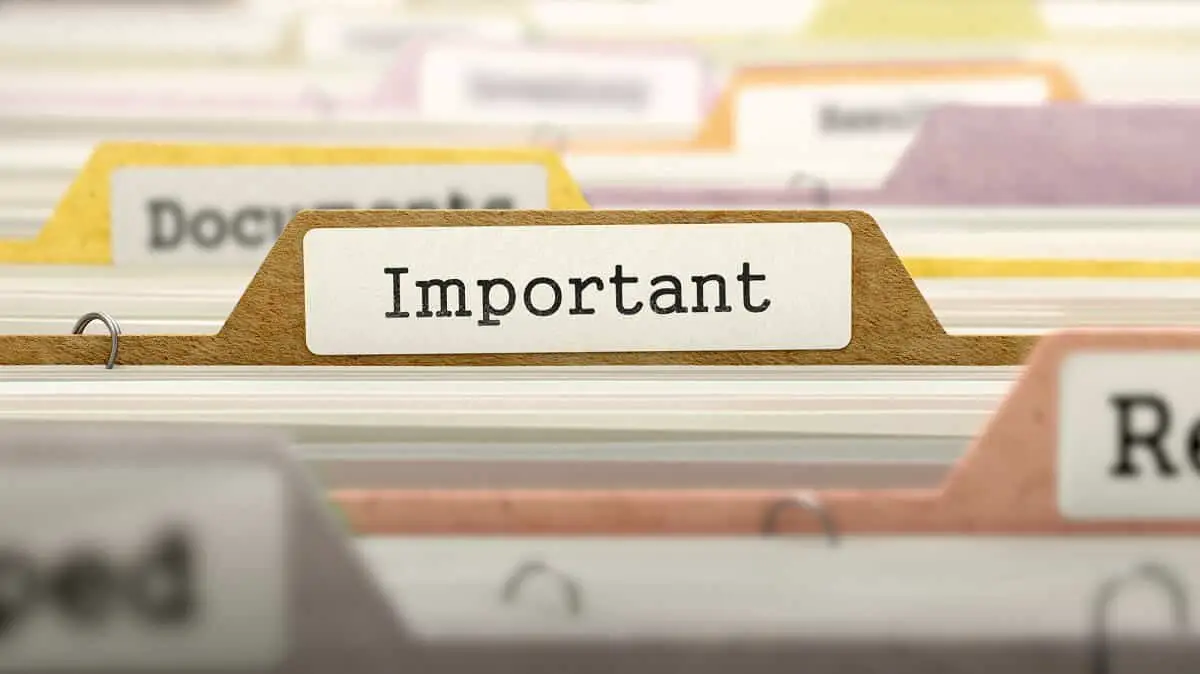
Most important documents are actually not used very often. You might only need to produce them or refer to them every few years. But when you DO need them, you need them NOW, and no substitute is acceptable. Without the right paperwork, even something as simple as getting a driver’s license becomes impossible.
1. Proof of Identity
Keep originals of these documents for each member of the family permanently: Birth certificates, social security cards, photocopies of driver’s licenses, state identification cards, or legal resident cards, passport books and/or cards, Certificate of Naturalization, voter registration.
2. Legal Record
Keep notarized or certified copies of these documents forever: Marriage licenses, divorce decrees, custody and visitation agreements, alimony or child support orders, adoption papers, name changes, estate-planning documents such as wills and trusts, civil judgments, active contracts
3. Educational and Employment Records
Keep official copies of these forever: official high school transcript and diploma, official college transcript and diploma, extracurricular activities, post-graduate work, internships, professional certifications and licenses, professional organizations, awards, current resume
4. Financial Records
Keep most financial records a minimum of seven years: W-2s, tax returns, receipts for tax deductions, paycheck stubs, 401K information, bank statements, vehicle titles, savings bonds, investments, mortgage and deed, warranty cards, Social Security award letter, health/life insurance policies
Keep in mind that these examples represent only a partial list of these important documents that you and your family may need to declutter home office. Your document storage needs are most likely far greater. The critical question then becomes, “What is the best way to store your important documents at home?”
Best Home Office Organization Ideas and Hacks:
1. Get Rid of the Clutter
As we have demonstrated, there are potentially hundreds of important documents, and it takes home organization ideas to help keep them straight. But at the same time, there are probably thousands of pages that you no longer need and may safely discard. Just remember to shred personal or sensitive data.
2. Use a System
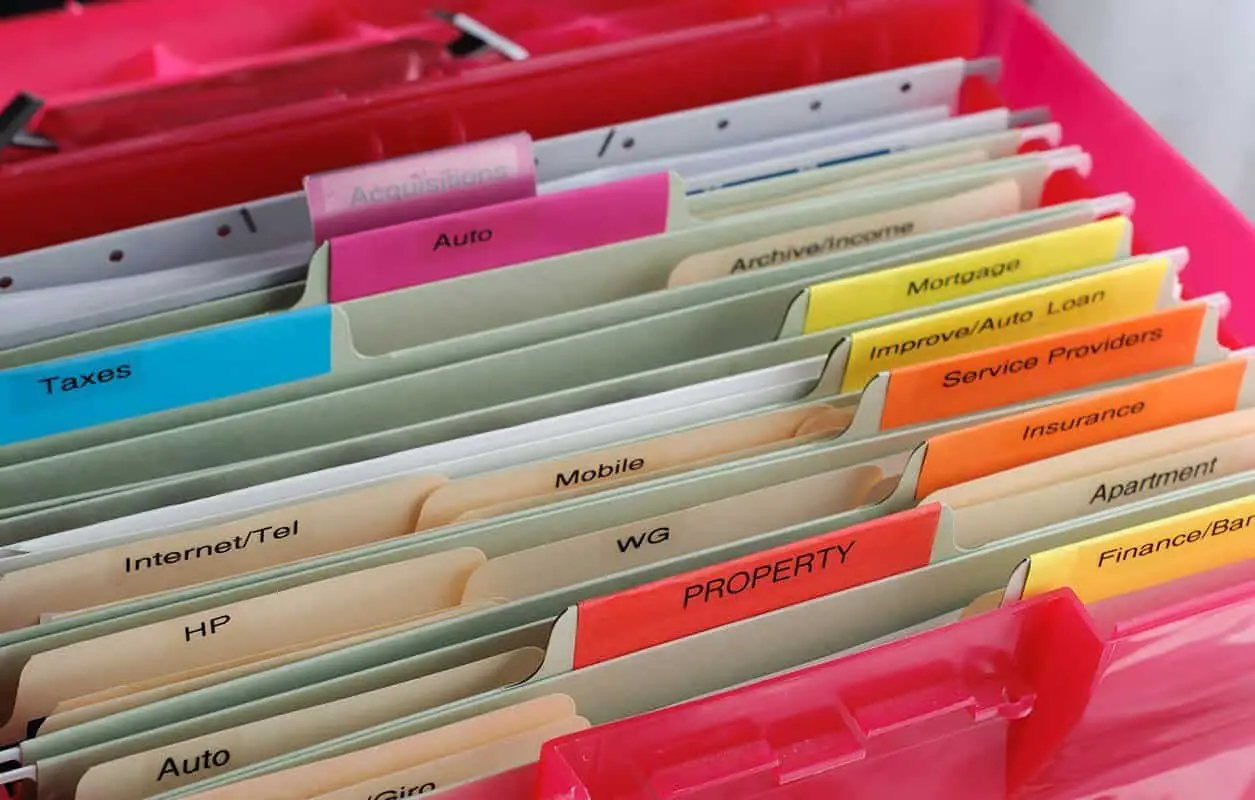
Having an easy-to-understand system is crucial for organizing your important documents. Luckily, creating that system is easier than you think. All you really need are hanging and file folders, labels and tabs, and a good file cabinet. To safeguard your privacy, consider purchasing a file cabinet that locks.
First, sort your documents into general categories, such as personal identity, legal, financial, medical, personal, religious, military, etc. Create a tab for each broad category, affix those tabs to hanging folders, and then place the folders into the drawers of your filing cabinet. How you organize those folders is up to you.
For example, some people choose to organize their vital personal papers by the most straightforward method – by putting the categorized hanging folders in alphabetical order. Using this method, the hanging folder with the “Financial Records” tab would be placed before the “Legal Documents” hanging folder, for example.
Other people organize the hanging folder categories by importance or by frequency of use. For example, if you or a family member has a chronic health condition that requires frequent doctor’s visits, you might want to place the “Medical” hanging folder near or at the front of the drawer for quick and easy access.
Next, further sort each category of documents into more specific subcategories. For instance, you could break down the “Proof of Identity” category into “Birth Certificates,” “Social Security Cards,” “Passports,” and so on. Label your file folders with these subcategories, then place the appropriate documents inside.
Again, organizing the documents within the file folders and the file folders within the categorized hanging folders is up to you. A good rule of thumb that you might choose to follow is to organize the documents within the file folders chronologically while placing the file folders inside the hanging folders alphabetically.
Additional Tips to Organize Important Documents at Home
Because the number of documents you need to keep – and therefore, your storage needs – will continue to grow over time, always leave plenty of extra space within each drawer. Allowing for that growth may leave you with a lot of empty and unused space right now, but you will be thankful for that room in the future.
Earlier, we suggested that you purchase a file cabinet with locking drawers to protect your privacy and security. Because many of your important documents and personal papers are difficult – or even impossible – to replace, we further strongly recommend that you buy a file cabinet that is fireproof, as well.
Conclusion
And there you go, how to organize important documents at home.
If your home filing system is a mess right now, you may think that organizing your important personal documents is an impossible task. But with the right tools, the right approach, and the right mindset, you will soon have everything back under control, where there is a place for everything, and everything is in its place.
